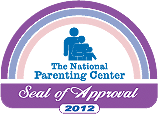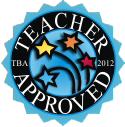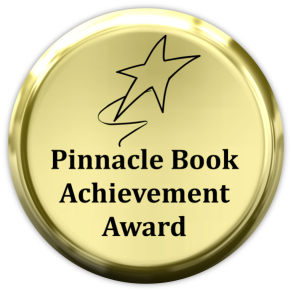Already a Member? Login Now
How Is Your Child Meant to Learn?
Kidzmet's proprietary Learning GPS (Learning Guided by Passions and Strengths) evaluation has already helped tens of thousands of parents, homeschoolers, and teachers around the globe to map their kids' unique paths to success. So much that we've been honored with some pretty stellar awards from both parent and teacher associations.
We'd love to help you, too!
learn more »
How To Choose the Best Instrument for Your Child
 If you have a little musician in the house, they may be chomping at the bit to graduate up from your pots and pans and belting out vocal stylings to toddler tunes to their first musical instrument.
If you have a little musician in the house, they may be chomping at the bit to graduate up from your pots and pans and belting out vocal stylings to toddler tunes to their first musical instrument.
Selecting the right instrument for your child is a very important decision because you and your child will be hearing that instrument daily for as long as they keep up lessons. Before you decide on an instrument, it's important to narrow your focus to instruments that are a great match not just for the student, but for the family as a whole.
Here are some tips on finding the best musical instrument for your future Yo Yo Ma, Kenny G or George Winston:
 How old is your child?
How old is your child?
Woodwind and brass instruments (excepting the recorder) can't be started until the child has a mouthful of adult teeth--typically about 7 or 8--in order to position their lips and teeth correctly around or in front of any mouthpiece. String instruments are often made down to size where even the tiniest tykes can start learning them at 3. Drums and piano can also be started very young--even as young as 2.5--though it's important to choose a teacher that's well-versed in teaching kids this small. If you have any indication that your child may have musical talent, though, be sure to get them started with music lessons between ages 3 and 5, as studies out of Japan are now showing that kids that show signs of musical talent and start lessons before age 6 have a greater chance of achieving PERFECT ABSOLUTE PITCH...a talent that only a rare few currently possess, but that nearly 70% of popular performers do.
 How much room do you have available in your house or car?
How much room do you have available in your house or car?
While upright pianos don't typically take a whole lot of space, even the 8 square feet an upright takes in the main living area of a small house or apartment can cramp a family's style. You may consider trying a keyboard instead, but it's important to invest in one that has 88 weighted keys...and that your chosen instructor is comfortable with your choice before you purchase one. Drum sets are another big footprint item that may be crossed off the list of potentials by virtue of space alone. But, if you have a kid that's dying to be a drummer, there are options like a digital drum kit or drum pads that take up less space that some teachers may be comfortable with. However, you may not have considered the size of a cello, bass, or tuba related to the space available in your car when narrowing down your instrument list. And if you're thinking of crossing a harp off your list by virtue of size alone, you may want to reconsider as there are smaller harp sizes built for even tiny fingers.
 Consider your budget.
Consider your budget.
Be sure to take into account what you can reasonably afford to rent or purchase (bearing in mind that you will probably want to start with a gently used second hand instrument when first beginning). There's no point in letting your child set their heart on an instrument that you won't be able to buy or rent for them. Many music shops will allow your rental fees to be put toward your future instrument purchase, so when first trying an instrument, a rental is often a great choice. Craigslist and eBay also often have great deals on gently used instruments that are locally available.
 Now for the fun part – figuring out which types of instruments you all like hearing most.
Now for the fun part – figuring out which types of instruments you all like hearing most.
Check out music CDs at the library or download some free MP3s and see which ones you both gravitate toward. Need a way to narrow the field? Start with instruments that you feel best match the personality of your child. Your boisterous extravert may instantly connect with a trumpet, guitar or drum, while an introvert may prefer a flute, clarinet or violin--all instruments that typically play in a section in orchestras or bands versus having a solo voice. Bonnie TeVelde, an Arroyo Grande, CA music teacher that specializes in pairing the right instruments and teachers with each child based on Myers-Brigg personality types recommends violin, cello and band instruments for "S" personality types and piano, guitar and drums for "N" personality types (AKA little composers). By taking Kidzmet's Preference Profile, you'll not only get recommendations for music and other enrichment classes that are well-suited to your child's personality, but we'll also recommend the local music teachers that are most compatible with your child and, therefore, uniquely qualified to celebrate his or her spirit.
And now for the NOT so fun part—but perhaps the most critical.
 See if you and your little musician can sit in on a few beginning lessons in the instruments he or she is most interested in learning to play.
See if you and your little musician can sit in on a few beginning lessons in the instruments he or she is most interested in learning to play.
Make sure both of you can stand to hear the instrument played poorly, since you will be hearing this level of musicality around your house on a daily basis when they first get started.
Whichever instrument you ultimately choose, your child will need your encouragement to continue practicing--especially in the beginning. Start with about 10 minutes of practice once a day and try to increase the time in 5 minute increments with a goal of approximately 30 minutes a day. As their competency improves, you shouldn't need to nag them to practice, since much of the motivation to practice and advance their knowledge will come from inside. This said, it helps to have a cheering section during and after their daily practices so that they know that their musical talent is valued by their family.







